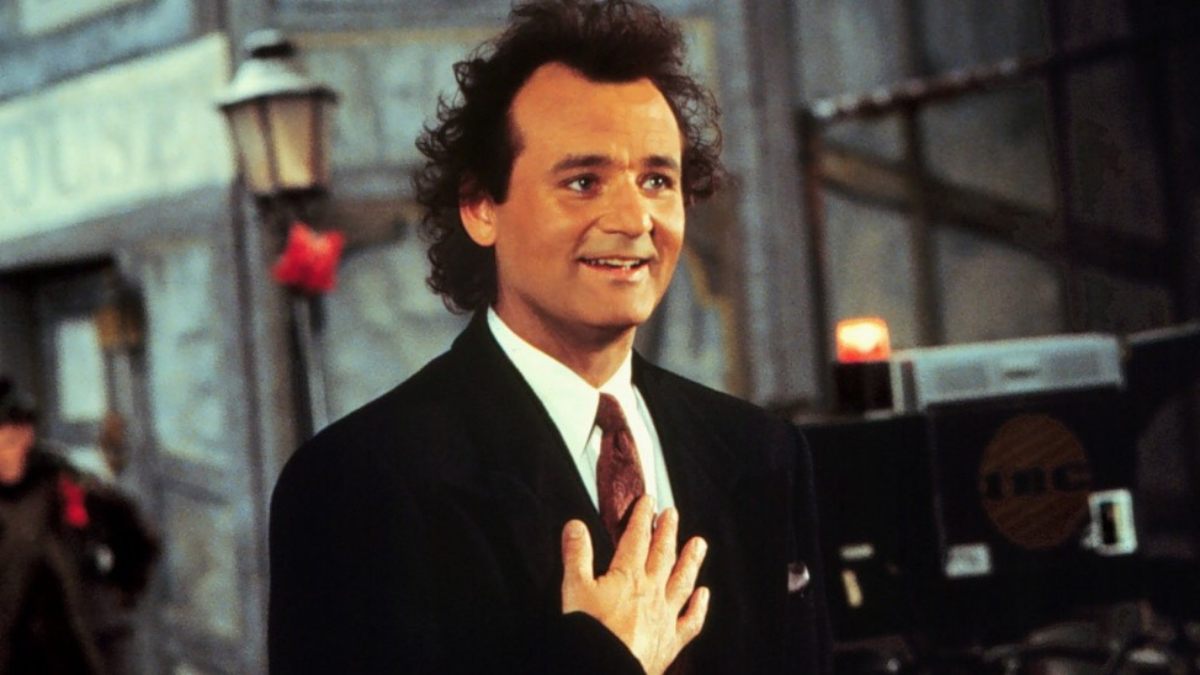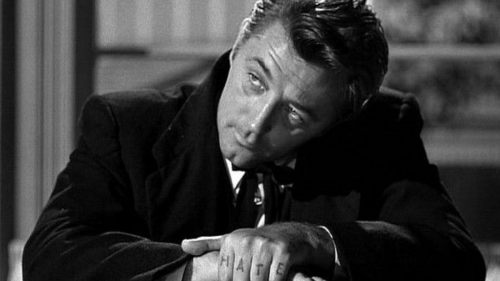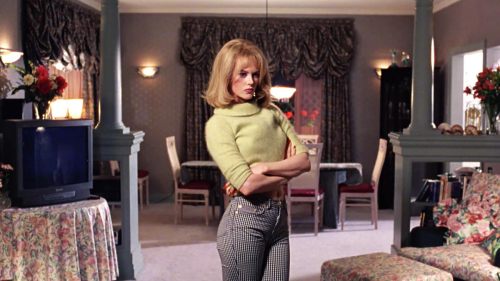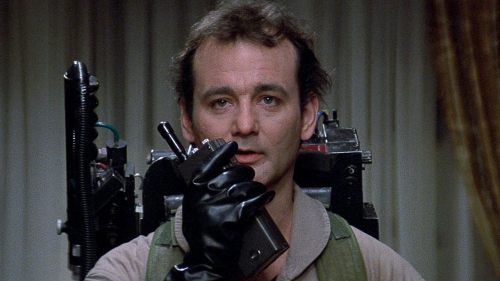Cover to Credits: SCROOGED
"The book was better" is a phrase heard often in conversations about book-to-film adaptations. "Don't judge a book by its movie" is another common jab. While we've all uttered some version of this sentiment at one point or another, there have been those rare occasions when the opposite is true. As a lifelong bookworm and cinephile, I've discovered that whether I read the book before or after seeing the movie can have a profound influence on my enjoyment of the story across both mediums. In this column, I’ll be checking out old and new adaptations to further explore both sides of that experience. In the process, I hope to unveil how these two vastly different mediums work together to tell the same story, from cover to credits.
---
“Why show me this, if I am past all hope?”
- Charles Dickens, A Christmas Carol
What I love about Richard Donner’s sardonic twist on Charles Dickens’ classic story – which, in my opinion, was ahead of its time in 1988 – is how it leans into a more pessimistic perception of the holidays. While some may find this off-putting in a Christmas flick – such as Roger Ebert who noted, “the movie’s overriding emotions seem to be pain and anger” – anyone who’s ever struggled to get through the holidays can surely relate to cantankerous TV exec Frank Cross' (Bill Murray) disdain toward the commercialized and disingenuous nature of the season. In fact, understanding precisely how he feels is what makes his moment of redemption so profound, because he’s not merely opening his heart to the spirit of a day that comes and goes once a year, he’s opening it to making peace with the lifetime he’s already spent in pain and anger.

Lord knows there are plenty of reasons to be a Scrooge today, which is likely why A Christmas Carol continues to be adapted across every medium known to man. What strikes me as funny, with all the “Bah, humbug”-ing surrounding remakes these days, is that there are still a precious few classics (I’m looking at you, Little Women) for which we remain fairly open to the prospect of these “reimaginings.” I have yet to watch Steven Knight's new version, but I must say that I'm intrigued by the somber approach he's taking. It’s always been the darker supernatural tones of the book that I respond to most – to the extent that I think the story's endurance has more to do with Dickens’ decision to have the dead commune with the living than with its happy holiday setting. After all, the ghosts of past, present, and future offer Ebenezer Scrooge the sort of invaluable guidance that could only be gleaned from a lifetime of experience and the regret of unfinished business. Who wouldn't welcome such knowledge from the beyond? Discovering that these “wandering spirits” lived greedy, selfish lives, chaining them to an eternity of helping others see the error of their ways is what ultimately leads Scrooge to contemplate the gravity of his own mortality.
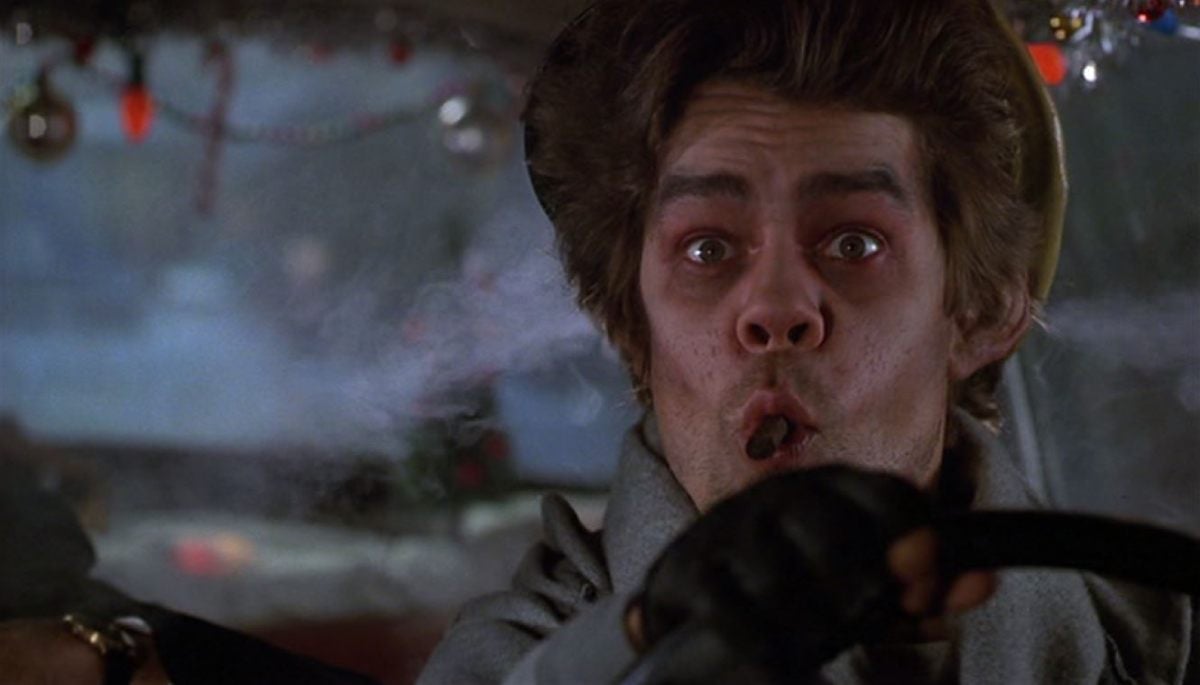
The ghosts have always been the driving force of the story, but in Scrooged they reach an entirely new level. Behind the terrific makeup and effects (nominated for an Academy Award), the boisterous presence of David Johansen as the taxi driving "Ghost of Christmas Past" launches Frank’s trip down memory lane into maximum overdrive. But it’s the pink slippered feet and glittering wings of Carol Kane as the "Ghost of Christmas Present" that I worship most. It's kinda hard not to revel in her ferocious approach toward teaching Frank the importance of living in the moment. Of course, everything about this movie exists at an exaggerated, extremely eighties level, which is part of its charm. Even reading through the list of names that make up the supporting cast can only partially prepare you for the insanity that awaits: John Forsythe, John Glover, Bobcat Goldthwait, Robert Goulet, Buddy Hackett, John Houseman, Lee Majors, Robert Mitchum, Mary Lou Retton, and Alfre Woodard. Anchored by Bill Murray’s frenetic and, in the end, extremely moving performance – matched beautifully by Karen Allen’s compassionate turn as his love interest, Claire – this adaptation is an original and endlessly quotable alternative to the traditional holiday film.

I’ve always approached the end of each year as a time of reflection. I know I’m not alone this month in looking back on the last ten years, making lists of everything from movies and books that resonated with me to my own personal accomplishments. There’s something cathartic about measuring the passage of time with the things that brought us joy, rather than focusing on the hardships; although, I know we can’t (and shouldn’t) ignore how those, too, have changed us. Revisiting this beloved ghost story, I realize how much it speaks to the significance we place on learning from the past and striving to be better in the present, all in hope of paving the way to a brighter future. Even this cynical comedic take on Charles Dickens’ timeless tale maintains the core message that only through bettering ourselves can we ever hope to make the world a better place (“for you and me, you just wait and see").
It’s a classic hero’s journey I think we can all relate to, especially in this pivotal moment at the end of a decade when we’re so inclined to look back before forging ahead.
